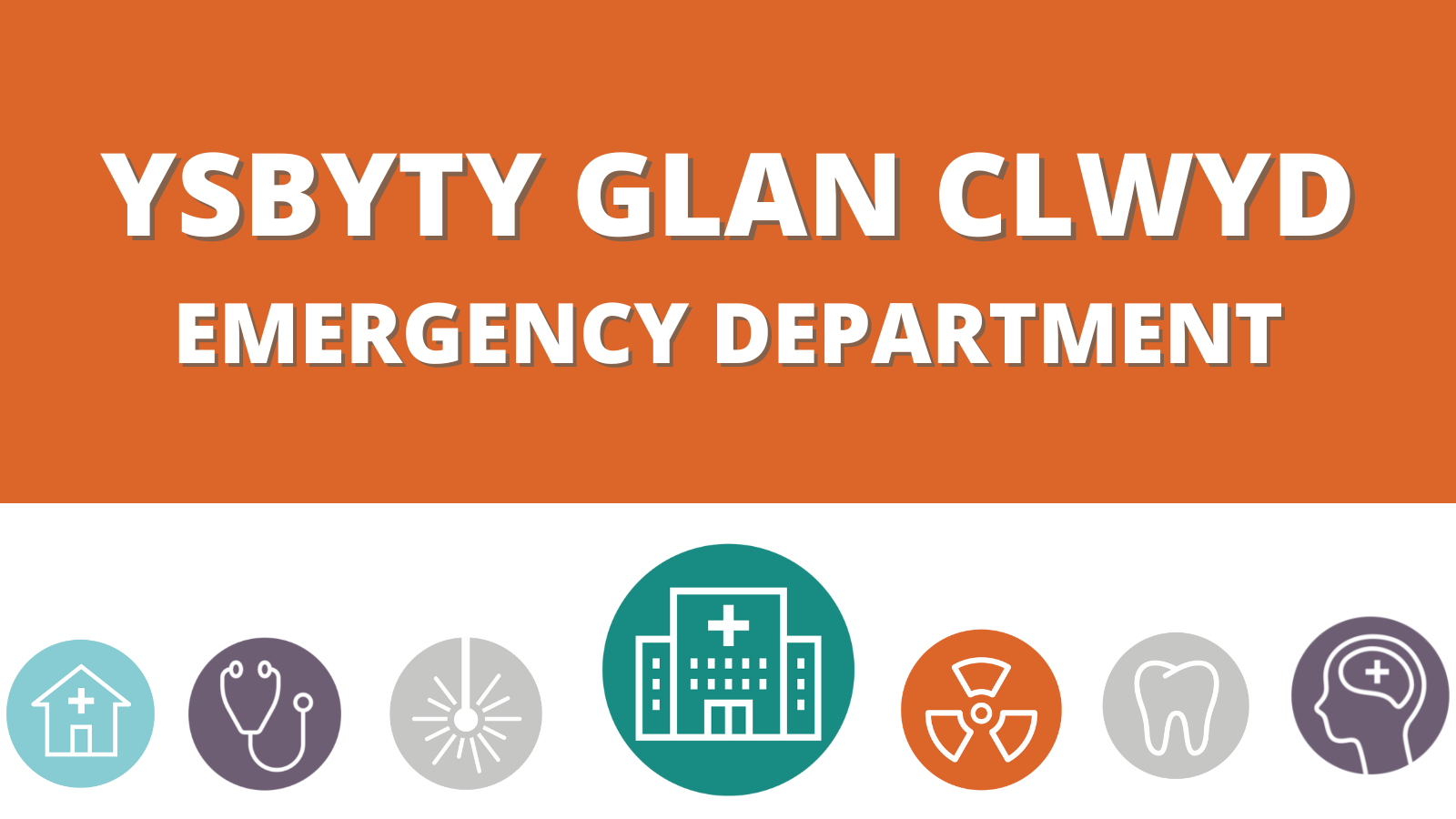Ysbyty Glan Clwyd Emergency Department remains a ‘Service Requiring Significant Improvement’ following HIW inspection
Healthcare Inspectorate Wales (HIW) has issued a report (29 March 2023) relating to its inspection of the Emergency Department at Ysbyty Glan Clwyd in Rhyl.

The visit in November 2022 follows on from work which HIW carried out in March and May 2022 and is the third inspection report published by HIW in relation to this unit since March 2022. Our inspection in May 2022 resulted in the department being designated as a service requiring significant improvement (SRSI), a classification applied by HIW to those services where concerns about standards are the most significant. Whilst there were some improvements found in November, compared to earlier in the year, these were minimal and did not provide HIW with enough evidence to be able to remove the SRSI designation.
In November, our inspectors once again found an incredibly busy department, struggling with shortages of staff, high numbers of seriously unwell patients and a lack of space to treat them.
Emergency Department (ED) staff were working tirelessly in this challenging environment to provide the best care that they could, but told inspectors they often felt unhappy, struggled with the workload and did not feel supported by health board senior leaders. They did, however, praise the managers who worked directly within the department, and we found that at this local level, both senior medical leadership and senior nursing leadership was supportive and visible.
We did find evidence that there had been improvements to the overall standard of recording within patient notes. ED medical staff were recording interventions and actions clearly and they were easy to follow, nursing staff were recording their care and interventions in a similarly clear, improved way. This was a positive finding and indicated progress had been made in this area since our last inspection.
The inspection identified that the staffing rota for the department was challenging to maintain, with a heavy reliance on using bank and agency staff to cover absences, alongside a difficulty in recruiting and retaining staff. Staff also raised concerns about the varied levels of staff experience available on shifts, including times when most staff were junior.
On day two of our inspection in November, the department was short of both nurses and healthcare assistants (HCAs). Staff were moved to support the busiest areas of the unit, which meant the corridor area accommodating unwell patients was left unsupervised. During this time HIW inspectors had to support one patient who was unwell and needed help, but no staff could be located.
Inspectors found that efforts had been made to improve the arrangements for oversight and care provided to patients in the waiting room, including a registered nurse now allocated to cover patient arrival and waiting areas. When there was no nurse available, an HCA was assigned to this role.
This inspection found that again, the flow of patients through the department was extremely challenging. Inspectors found that initial waiting times to see a doctor had improved since our visit in May 2022, but these were still in the region of three hours. Where input from a specialty doctor was requested by ED, our inspection found that there were varying response times. On some occasions, specialty doctors refused to review patients waiting within the ED, leading to further delays in their treatment and longer waits in the department. This was echoed by comments from staff who told us this caused frustration and was a further hindrance to patient flow overall.
The provision of timely care to patients within the department was again highlighted by inspectors as an area for improvement. There were significant delays in patients being triaged and this placed patients at significant risk of harm. These delays exceeded two hours at times and included patients with time critical conditions such as stroke and chest pain. This meant that treatments could not be offered within recognised critical intervention timescales.
There was evidence that observations such as blood pressure checks, records of pulse and breathing rate on patients at risk of deterioration were not repeated at a frequency in line with national guidelines. This could lead to a delay in time critical treatment. We also found instances where screening for sepsis was not undertaken and delays in patients being given antibiotics or pain relief.
Issues also remained in relation to management of environmental risks within the department. There were medicines left unattended, out of date medication, unlocked cupboards containing sharp instruments easily accessible and doors between different areas of the department not secured. We also found empty food trays, used urine bottles and other clinical equipment not cleared away for long lengths of time.
A plan has been produced by Betsi Cadwaladr University Health Board which contains a comprehensive set of actions to address the wide range of improvements needed. As a service that remains under HIWs highest level of scrutiny, HIW will continue to monitor the response of the health board very closely.
Chief Executive of HIW, Alun Jones said:
‘This inspection found evidence of a department struggling to cope with the day-to-day demand of providing a safe service to patients. It has highlighted areas such as poor team working between the ED and other departments within the hospital which in turn is compounding nationally recognised challenges around patient flow. The health board will need to take strong and decisive action to tackle the issues identified in our inspection. We will continue to engage with the health board to ensure sustained action is taken in relation to our findings’.
November 2022 – Hospital Inspection Report: Emergency Department – Ysbyty Glan Clwyd
November 2022 – Inspection Summary Report: Emergency Department – Ysbyty Glan Clwyd